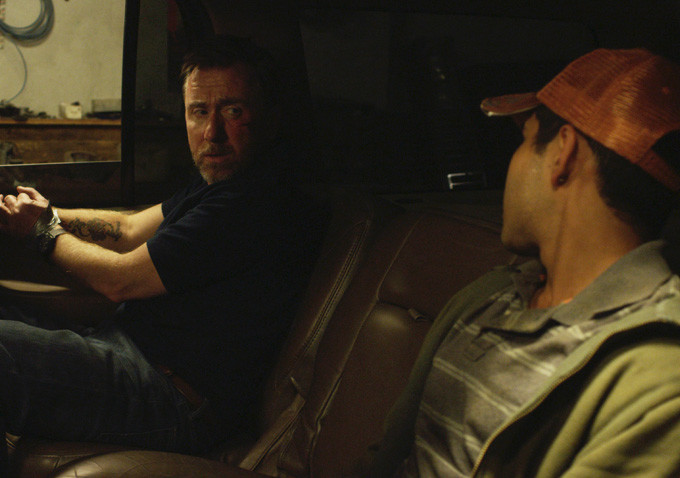 Julieta is a fantastic film. I thought I better get that out of the way to begin with. Pedro Almodovar has an impressive track record for this type of female led drama. He is a master at getting the best out of his actors by providing them with a story and characters that have depth and intelligence. After his knock about comedy (well, kind of) I’m So Excited, which was not received as well as was expected, he returns to more familiar ground.
Julieta is a fantastic film. I thought I better get that out of the way to begin with. Pedro Almodovar has an impressive track record for this type of female led drama. He is a master at getting the best out of his actors by providing them with a story and characters that have depth and intelligence. After his knock about comedy (well, kind of) I’m So Excited, which was not received as well as was expected, he returns to more familiar ground.
Julieta (Emma Suarez) appears to be at ease as she prepares for her retirement. She is moving from Madrid to Portugal with her long term partner and is in the process of packing. A chance meeting with a woman on the street informs her of the fact that her estranged daughter of twelve years is living in Italy and has three children. This piece of news sends Julieta into deep shock as it brings back old feelings that had long been suppressed. She immediately cancels her moving plans, breaks up with her partner and moves to her old neighbourhood in Madrid. To help her work through her issues, she starts a journal which takes the form of a long letter of explanation to her daughter.
This film grabs you from the very first scene. There are subtle elements brought into the scene that basically sets up the rest of the film. We immediately get the sense that Julieta is a complex and troubled character without her actually saying anything. Her demeanour is conservative and although happy she is withdrawn with little or no excitement for her new life in Portugal
 Almodovar makes use of extensive flashbacks to tell the story of Julieta, her daughter and their life together before the relationship became fractured. The younger Julieta is played by Adriana Ugarte. She looks similar to the older version of the character and the two actors look to have spent a lot of time together perfecting the mannerisms of Julieta. It is very convincing. The younger version is full of life and is more than happy to take a risk. She doesn’t see problems. She thinks of it as an adventure. The older version is a complete contrast due to the circumstances she finds herself in. It is a far more fragile person that we see on screen. As well as the performance, the changes are communicated in the way Julieta dresses and carries herself. She is more reserved. Her hair is no longer cut harshly and her make up is more subtle and mature.
Almodovar makes use of extensive flashbacks to tell the story of Julieta, her daughter and their life together before the relationship became fractured. The younger Julieta is played by Adriana Ugarte. She looks similar to the older version of the character and the two actors look to have spent a lot of time together perfecting the mannerisms of Julieta. It is very convincing. The younger version is full of life and is more than happy to take a risk. She doesn’t see problems. She thinks of it as an adventure. The older version is a complete contrast due to the circumstances she finds herself in. It is a far more fragile person that we see on screen. As well as the performance, the changes are communicated in the way Julieta dresses and carries herself. She is more reserved. Her hair is no longer cut harshly and her make up is more subtle and mature.
The voice over used to move the story along can be a divisive technique. It works well here and in combination with the score it adds a level of tension to parts of the film. There is a part of young Julieta’s story set on a train journey and this has a very Hitchcockian feel to it. The old train travelling through the night, a mysterious mature gent with a story to tell and a handsome, rugged young man staring out into the passing night. Almodovar is no stranger to the comparison with Hitch as it has been noted in several of his previous works.
Overall, a complex and highly engaging drama from a master of cinema. Recommended.
- Arrow Video Titles For March 2025 - January 5, 2025
- G20 – Preview - January 5, 2025
- Royal Opera House launches Maria Callas tour featuring Angelina Jolie’s costumes from new biopic Maria - January 5, 2025




